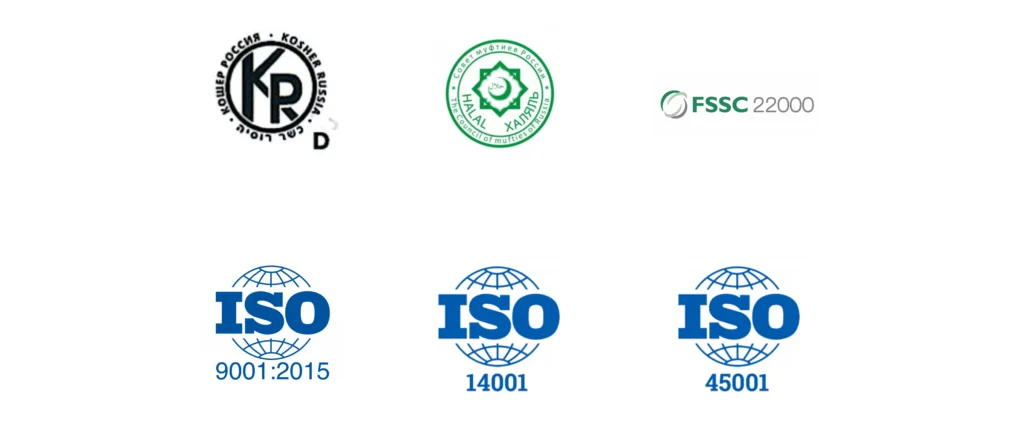The Role and Importance of Milk in Health
Milk is an important food source for human health and contains many nutrients that the body needs, such as protein, calcium, and vitamins. It plays an important role in protecting the health of both children and adults. Quality dairy products strengthen the immune system and help strengthen bones and teeth. For this reason, milk is indispensable in daily nutrition.
Benefits and Health Effects of Milk
1. Calcium and Bone Health
Milk is a rich source of calcium, and this mineral plays an important role in strengthening bones and maintaining healthy teeth. Calcium deficiency increases the risk of osteoporosis (a disease characterized by a decrease in bone density and strength, which makes bones brittle and prone to fractures). The US National Institutes of Health (NIH) states that milk and dairy products are the main food source to meet calcium needs, especially in adulthood.
2. Protein and Muscle Growth
Milk contains high-quality protein.It contains all essential amino acids that the body cannot synthesize on its own.Milk is an important source of protein for athletes and those involved in physical activity. A 2010 study showed that milk protein promotes muscle recovery and growth.
3. Vitamin and Mineral Support
Milk contains vitamins A, D, B12 as well as minerals such as phosphorus, potassium and zinc. Vitamin D in particular is important for calcium absorption and bone health. The World Health Organization (WHO) considers milk to be an essential product for complete nutrition.
4. Strengthening the Immune System
Milk contains proteins, enzymes and antimicrobial substances that support the immune system. These substances play a role in fighting infections and strengthening the body’s defenses. It is especially beneficial for immunity in children and the elderly.
5. Supporting the Digestive System
Milk, especially fermented dairy products (kefir, yogurt, etc.), is rich in beneficial probiotic bacteria that maintain the balance of the digestive system. These bacteria help maintain a healthy intestinal flora and improve digestion.
What Should You Pay Attention to When Choosing Milk?
1. Ingredients Label (Label Information)
The following information must be indicated on the label:
Fat percentage: for example, 1.5%, 2.5%, 3.2% — should be selected according to daily needs and diet.
What does it contain: only “milk” or “milk, vitamin D” should be written. If there are additional stabilizers, colorings, flavorings — this is not a natural product.
Nutritional values: The amount of protein, fat, carbohydrates per 100 ml should be indicated.
Product type: Pasteurized, UHT, ESL or sterilized milk
2.Milk Preparation Methods and Shelf Life
How milk is prepared affects its quality and how long it can be stored. There are three main methods:
Pasteurized Milk– In this method, milk is heated to a temperature of about 72 degrees for 15 seconds. At this time, harmful bacteria are killed, but the milk still tastes like fresh milk. Pasteurized milk should be used in the refrigerator within 5–7 days.
UHT Milk– In this method, milk is sterilized at a very high temperature (about 135 degrees) for 2–4 seconds. There is no need to refrigerate such milk unopened and it can be stored for 4–6 months. UHT milk is suitable for long-term storage.
ESL Milk– In this method, milk is heated between 80–90 degrees and filtered used within 15–30 days from production date, and within a few days after opening. Its taste is similar to pasteurized milk, but it is stored for a longer period.
3. Origin and Organicity of Milk
Animal health status: If there is no use of antibiotics and hormones — it is more natural.
Organic milk: Milk is obtained from farms certified by international certificates. It does not contain pesticide, GMO, antibiotic residues.
4. Lactose-free or Standard Milk?
If you are lactose intolerant, look for the phrase “lactose free” (без лактозы) on the label.
Lactose-free milk has the same nutritional value and is easier to digest.
5. Packaging and Appearance
The packaging should be leak-proof and clean – if there are scratches or swelling, do not buy the product.
Milk in a box or bottle is better preserved in terms of quality.
Color and smell – for home use, the milk should be white in color and have a neutral smell.
6. Production and Expiration Date
Always check the production date and expiration date. Most milk should be used within 3–5 days after opening (depending on the manufacturer’s instructions).
7. Trusted Brands and Certifications
Prefer well-known, controlled and certified manufacturers. Products with quality and safety certificates such as FSSC, ISO, HACCP are more reliable.

What is Lactose-Free Milk and Who is it Suitable for?
Lactose-free milk is milk in which the lactose (milk sugar) in it has been broken down by an enzyme or removed by a technological method. This product is intended for people with lactose intolerance. Approximately 70% of the world’s population experiences this problem to varying degrees.
Benefits of Lactose-Free Milk:
Easy to digest – does not cause bloating, gas and pain in the stomach
Rich in composition – protein, calcium, vitamins A and D are the same as regular milk
Sweet in taste – it is naturally slightly sweet because the lactose has been broken down
Suitable for all age groups – an ideal choice for children, pregnant women, the elderly
Proper Use of Milk
1.It is recommended to consume milk at room temperature or warm.
Cold and iced milk can negatively affect the digestive system and disrupt stomach function.
2.Milk should be drunk slowly, in sips.
At this time, the milk remains in the oral cavity longer and the initial digestion process begins more effectively.
3.It is not recommended to drink milk immediately after a meal.
Milk can reduce the secretion of acid in the stomach, which can make it difficult to digest other foods.
4.It is recommended to drink milk on an empty stomach for better absorption.
On an empty stomach, the nutrients in milk are absorbed more easily and digestion is also easier.
5.Milk should only be used in combination with suitable foods.
Sweet fruits, berries and starchy vegetables go well with milk. On the other hand, it is undesirable to take it with flour products, as this combination can make digestion difficult.


Scalis: A Trusted Address for Healthy Dairy Products
As Scalis, we are the official distributor of well-known international brands in the field of milk and dairy products in the Azerbaijani market. Our goal is to provide customers with only high-quality, safe and international standard products.
Milk brands we distribute:
Valio– Lactose-free milk of the world-famous Valio brand, natural dairy products and high-quality ingredients are presented in Azerbaijan by Scalis.
Savushkin– A brand known for its natural milk and dairy products, with ISO, HACCP, FSSC 22000 and Halal certificates
Svalya is a brand of natural milk and fruit drinks produced in Lithuania. It is distinguished by its pure composition and delicate taste.
Домик в деревне (Domik v derevne)– It is known for its high-quality dairy products, which are popular in Azerbaijan. Its 6% fat milk is distinguished by its rich and natural taste, and is prepared in accordance with high quality standards. This milk, thanks to its rich composition and balanced fat content, is suitable for both daily use and cooking.
Чудо (Chudo)- Has a leading position in the Russian market for chocolate and fruit milk drinks, yogurts and milk-based desserts. Halal-certified products are also available for Muslim consumers
Savushkin Dairy Products Quality and Safety Certificates
Savushkin attaches great importance to the quality and safety of its products and uses many international and national certificates for this.
ISO 9001 (Quality Management System)- The company has been ISO 9001 certified since 2001, and all production facilities operate in accordance with these standards.
ISO 14001 (Environmental Management)- Since 2004, environmental protection standards have been observed, energy and resources are saved.
ISO 45001 (Occupational Health and Safety)- Since 2020, a management system in accordance with international standards has been implemented for the health and safety of employees.
FSSC 22000 (Food Safety Management System)- Since 2013, it has met the highest standards for food safety and is recognized in the European Union.
Halal Certificate– Since 2011, products have been produced that meet the requirements of Muslim consumers.
Kosher Certificate– Since 2017, products have been offered that comply with Jewish dietary regulations.
Valio Dairy Product Certificates and Quality Standards
Valio attaches great importance to the quality, safety and sustainable production principles of its dairy products. The company’s dairy products are certified by a number of international certificates:
ISO 22000 – Food Safety Management System:
Valio operates in accordance with the ISO 22000 standard to ensure food safety at all stages of production of its products.
FSSC 22000 – Food Safety Certificate:
This international certificate shows that Valio’s food safety systems are at a high level and are accepted in European and world markets.
ISO 14001 – Environmental Management:
The company pays great attention to environmental protection and applies this standard in order to reduce the environmental impact in the production process.
ISO 9001 – Quality Management System:
Valio adheres to the ISO 9001 standard to ensure the quality of its products and customer satisfaction.
Chudo Milk: A Fun and Healthy Choice with Chocolate and Fruit Flavors
“Chudo” milk not only offers the benefits of natural milk, but also creates sweet and delicious options for children and young people. With its chocolate and fruit options, “Chudo” milk is both a delicious and nutritious drink.



